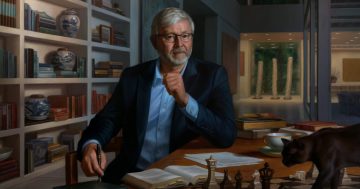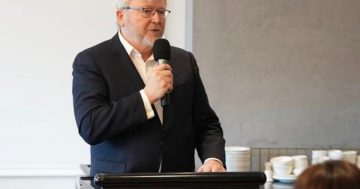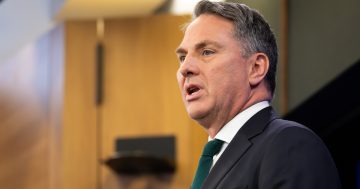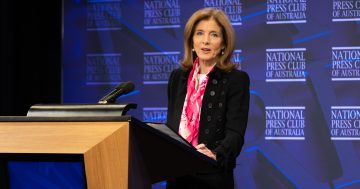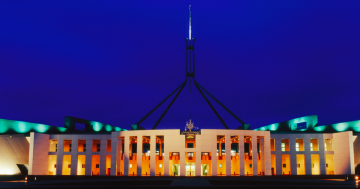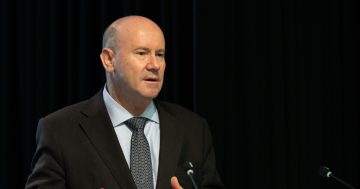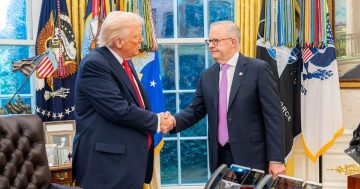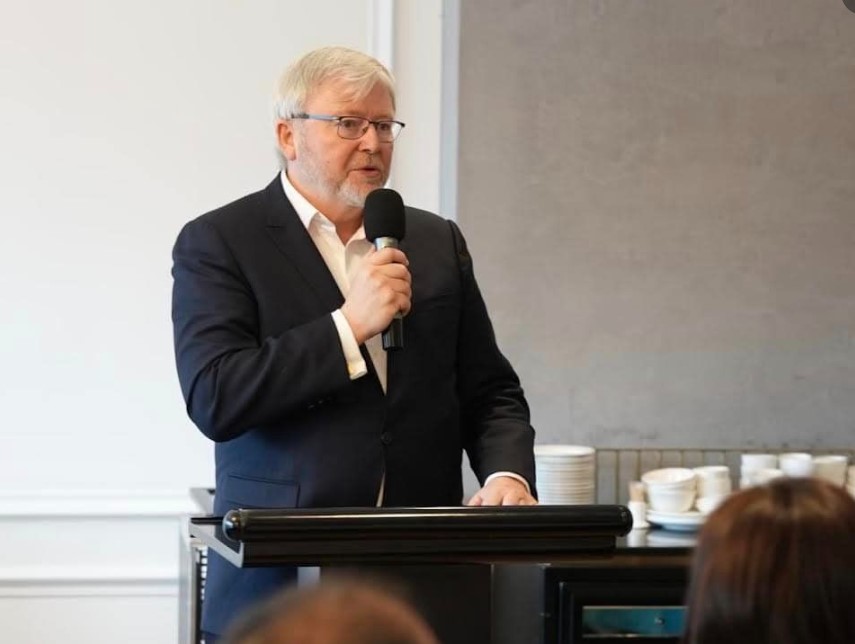
Kevin Rudd is Australia’s next Ambassador to the United States. Photo: Kevin Rudd, Facebook.
Christmas is long gone, the new year is rolling on, and the dust is settling on the fact that Kevin Rudd will soon be Australia’s ambassador to Washington.
Come March, the former PM will be ensconced in the US capitol, tasked with keeping Australia’s interests alive and well before those who matter in this important bilateral relationship.
There was predictable commentary about the appointment when Anthony Albanese announced it shortly before the nation switched to vaudeville for the holiday season.
Dropped jaws and feigned shock led the overnight opinion pieces that surfaced.
Much of the criticism came from News Corp, which seized the opportunity for a little payback over Rudd’s campaign for a royal commission into the media empire.
That’s all understandable. Why wouldn’t they?
But let’s take a look at this appointment, which is a diplomatic and public service role of the highest order.
Despite what some new wave thinking might be suggesting, Washington remains the most senior overseas appointment for an Australian diplomat.
It’s our top posting and whoever has it must bring to it exceptional knowledge, skill, and networks.
There can be no doubting Rudd’s intellect. The man’s more than just smart.
And his network is as vast as it is astounding. He knows people well. The right people.
His first time round as prime minister, however, exposed a number of serious character flaws and less than pleasant personality traits. They lost him his job.
But those same attributes saw him seize the job back before too long – even if not for too long at all.
The man has attracted more than his share of haters (nowhere more so than within his own party) and probably deservedly so in many instances.
But the current Prime Minister is not among them.
Albanese was always a strong Rudd ally.
While Julia Gillard was PM, Albo was her fiercely loyal fighter.
But he voted against her when she was Rudd’s deputy seeking to take the top job, and Albo voted against her again when Rudd snatched it back.
That whole messy blight on the Labor Party thwarted two high-achieving prime ministerships. And the ALP has a long memory.
Just months before Rudd’s appointment was announced, the Lowy Institute published a paper calling for a more transparent process for such diplomatic appointments – an application process open to the public, no less.
That’s a novel idea, but it will hardly catch on.
Some appointments rightly go to career diplomats, while others (rightly and wrongly) go to political allies.
The political appointments will always attract controversy, particularly when party hacks who are all too willing to cry foul over anything get involved.
Rudd’s appointment is certainly a political appointment and a “mates’ rates” job. But if you’re sending a mate to Washington, he’s got to be able to cut the mustard.
You can’t dick around with the Americans.
Listing the ambassadors to Washington from the past 15 years or so – Dennis Richardson, Kim Beazley, Joe Hockey, and Arthur Sinodinos – they’ve all been high-calibre candidates, as have those who preceded them.
As with London, Tokyo, Jakarta and Beijing, a prime minister has to get it right when sending a new ambassador to Washington.
Rudd will almost certainly shine in the role and represent Australia’s interests well.
Sending a former prime minister to Washington is showing the utmost respect to our American allies. Former prime ministers have gravitas.
We shouldn’t be surprised if more former Australian PMs end up as US ambassadors in the future.
Gillard, Tony Abbott, Malcolm Turnbull, Scott Morrison could all be ambassadors to Washington one day (hopefully not Morrison).
When Rudd’s term comes to an end, my vote would be for Gillard to be the next Australian Ambassador to the United States.
It’s long past due that an appropriately qualified woman be appointed to Australia’s most senior international posting – and Gillard has form as a trailblazer.
But despite the Lowy Institute’s campaign, I won’t get a vote. None of us will.
Original Article published by Chris Johnson on Riotact.


